While I’m away on vacation this week, I’m turning the spotlight on Renee N. Meland and her newly released YA dystopian THE EXTRACTION LIST. Welcome, Renee!
by Renee N. Meland
When fifteen-year-old Riley Crane finds out her best friend Olivia is being abused at home, she knows just who to turn to: her mother Claire, writer and spokesperson for President Gray’s Parental Morality Law. Under this law, Task Force Officers remove children from their homes if their parents do not meet certain guidelines, taking them to government-run boarding schools. Once they arrive, supervisors rehabilitate them, turning them into productive members of society. Or at least that was how it was supposed to work…
Now, after a government official threatens to make Riley the law’s latest victim, Riley and Claire must rely on Cain Foley, a gifted killer with a tongue as sharp as the knives he carries, to get them out of America alive. Though he slices through men’s necks as if they are warm butter, Riley can’t seem to keep her cheeks from flushing every time he speaks. But when they stumble upon a deserted boarding school, Riley sees that escaping the country is only part of their problem. Together, Riley and Cain figure out that a killer can save a life, and a mother can damn a nation.
Find it on Amazon: http://www.amazon.com/Extraction-List-Renee-N-Meland-ebook/dp/B00V8KADEY
Renee N. Meland lives in the Pacific Northwest with her husband and two dogs. Her favorite obsessions are Rome, learning new recipes, and exploring the world around her. She is an avid reader of speculative fiction, and believes that telling stories is the best job in the world.
For more about Renee visit her website, Twitter (@reneenmeland), Goodreads, and Facebook.
THE EXTRACTION LIST excerpt:
Sometimes a killer can save a life. In this case that life happened to be mine. I wish I had met him before the whole mess started. Maybe he could have saved more of us.
Maybe he could have saved us all.
I met the man who saved my life exactly one month after he killed his twentieth person. Of course he didn’t call it “murder,” he called it surviving, though sometimes I thought he should try to explain the difference to the people buried in the ground. To me, one label didn’t necessarily cancel out the other.
***
One of my teachers used to say the road to hell is paved with good intentions. Trust me, I knew all about it; I called that road “mother.” That teacher never mentioned what the road back was made with. I figured it was because nobody’d ever found one. Hell sort of struck me as a one-way-ticket kind of thing.
The night the Taskforce showed up on our doorstep, my mom screamed. After my brother Aidan’s death, then Dad leaving, hearing her carrying on like a crazy person wasn’t exactly new and different. I didn’t even flinch at first. I figured maybe she was missing my dad all the way to the bottom of a tequila bottle—again.
After a couple minutes though I slammed my copy of Crime and Punishment shut and left my room. I took my sweet time going downstairs to see her, hoping to hold on to the little bit of normal I’d had just seconds earlier. I stopped by the bathroom and grabbed a giant bottle of aspirin. Just in case.
Then I decided I was kidding myself. I knew better. There was no way she wouldn’t need aspirin.
“Riley! Get your stuff! We have to leave right now!” I ducked as Mom greeted me with a scene full of flying paper, jackets, and a few photo albums. They seemed to spin like a paper and plastic tornado, twirling through the air and landing unevenly in a giant duffel bag spread open at her feet. Even in the chaos I paused for a second to wonder how Mom’s hair managed to stay fastened perfectly in place. The image in front of me looked almost ordinary, a beautiful blonde woman in a fitted black skirt, white blouse, and hair pinned back in a bun, with a briefcase resting just inside the door.
Except this woman had thrown half our living room into orbit.
“Mom, what’s going on? What happened?”
Mom grabbed me by the shoulders and stared right into my eyes. “We need to leave right now, okay? I need you to not ask questions and just go pack a bag. You need to just trust me and do what I tell you, okay? And do NOT come downstairs until I say so.” Mom didn’t blink. I remembered the last time she didn’t blink during a whole conversation: When she told me that she and Dad needed to “work on their communication.” I found out later that was Mom-speak for “Dad’s about to abandon us and slam the door for the last time.”
I suddenly wished for the empty tequila bottle.
“You are my life.” Mom kissed my forehead, and I ran up the stairs. I didn’t come down again until I heard the gunshots. At fifteen, I was all too familiar with the sound. A person was never too young to know the snap of a gun anymore. But it was different coming from our house, like a firecracker going off inside my brain.
When I got to the entryway, a pool of blood belonging to a man in a gray suit tried to hold my shoes to the floor. The sticky mess grabbed the soles of my sneakers and smelled like raw steak fresh out of the plastic wrap. I winced as I stepped through it toward my mom. A pink piece of paper rested on top of the pool, slowly flooding with the dark red liquid. Bo, my mom’s best friend, had appeared too. Pistol smoke swirled gently from the tip of his weapon.
It wasn’t the blood, but the paper that made me scream. I felt the color drain from my cheeks, and I wondered if I looked as white as the dead man lying on our floor. “What the hell is going on? Is that pink paper what I think it is?”
Mom ignored my question. I hated being ignored more than anything, especially by her. But since there was a dead body involved, I figured I’d make an exception.
“Oh my GOD—you KILLED him!” Mom screamed, and in all her stick-thin glory started flailing her arms, hitting Bo with the strength of a flightless bird. Her bony fists bounced off his body as if his chest were made of rubber. If it hadn’t been a murder scene, it would have been kind of funny.
“Are you SURE? I saw him push you and I panicked. Maybe he’s just wounded.”
Thank God Bo didn’t panic more often.
Mom took a deep breath and stepped through the blood. She gently picked up the man’s hand and placed two fingers on his wrist. When she released it, her fingertips were stained red. “Yes. He’s dead.” She made a grand gesture, starting at his head and finishing toward his feet. “That’s what dead people look like. What are we going to do?”
My hands shook, partially from fright and partially because no one would tell me why there was a dead guy in the entryway.
Or why he had the pink slip of paper.
Bo grabbed Mom by the shoulders and held her still. “Claire, we’re going to grab Riley and we’re going to get out of here before more people come looking for this guy. I’ll tell you the plan on the way.”
Mom scoffed at him with wide eyes. “Plan? I don’t need your plan. I’m going to go straight to President Gray about this and he’s going to fix it. He has to.”
A twinge of hope rose inside me, working its way up from the tips of my toes to the top of my head. Maybe we wouldn’t have to leave our home after all. Maybe our little visit was just a really complicated, really messy misunderstanding. “Yeah, Mom’s right. I’m sure he’ll fix this. I can’t actually be on the Extraction List, right, Mom?”
“Of course not. There’s no way.”
Mom started toward the door, but Bo stepped in front of her.
“Claire, you saw the paperwork with your own eyes. Gray knows all about this. His signature is there.” He pointed to the guy on the floor. “This guy was going to grab your daughter. We need to go right now.” Bo took Mom by the hand and dragged her out the door.
I hesitated, frozen in the growing pool of red. Sweat broke out on my forehead, and it wasn’t because of the crippling D.C. heat. If I was on the Extraction List, I was supposed to end up like all those other people from my class, the ones who the Taskforce grabbed right from their desks. Those were the ones who disappeared. Since Mom had written the law that the Taskforce was responsible for enforcing, I never thought that I would ever be a target. Politics was all about protecting its stars, and there was no bigger star than my mother.
But that little pink piece of paper could only mean one thing. I forced myself to look down at it. I searched the document, eyes falling on the bottom right corner. It was faded, stretched by the blood into an unnatural shape, but it was there—the President of the United States’ signature.
I grabbed the bag Mom had been trying to pack and zipped it shut. I swung my own bag over my shoulder and followed Mom and Bo out of our house, hoping that I would someday be able to come back. But deep down, I knew we were about to drive away forever.
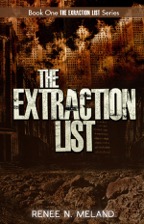

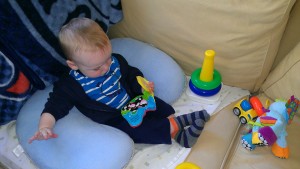
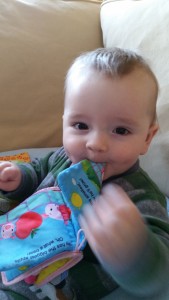
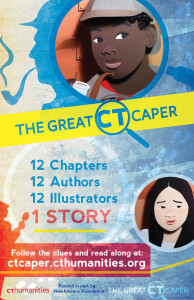
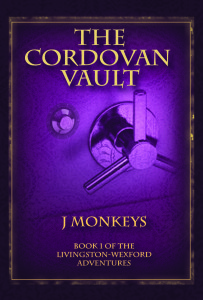
 Visit J Monkeys here:
Visit J Monkeys here:



















